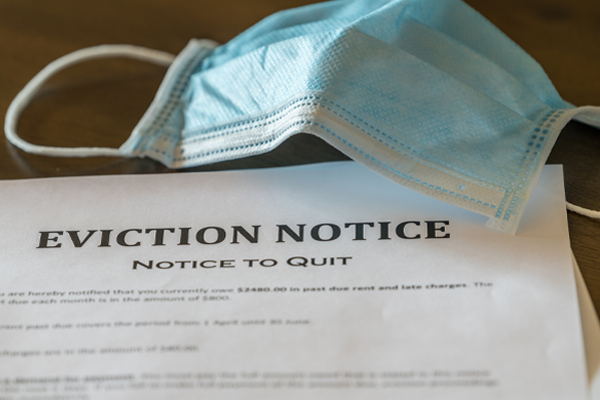
MACHW Workshops: Exploring Mental Health Strategies to Cope with Everyday Stress
Feeling stressed? … Emotional fatigue?
Would you like to learn new science based skills and strategies proven to help you cope with everyday stress and anxiety?

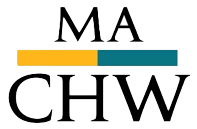
Register
Course Information
- Audience: Members of the Massachusetts Association of Community Health Workers (MACHW)
- Format: Online Workshop
- Date/Time: Thursday March 4, 2021
10:00 AM to 11:30 AM EST - Price: Free
- Length: 1.5 hours
- Credential(s) eligible for contact hours: Sponsored by New England Public Health Training Center (NEPHTC). If you complete the evaluation, you will receive a Certificate of Completion. The Certificate will include the length of the workshop.
- Competencies: Effective Communication, Education to Promote Healthy Behavior Change, Use of Public Health Concepts and Approaches
- Learning Level: Awareness and Performance
- Companion Trainings: MACHW Workshop Series
- Supplemental materials:Session PowerPoint
- Pre-requisites: None
About this Workshop
This MACHW interactive workshop series aims to support CHWs as they strive to serve their clients during these challenging times. The workshop formats will include expert panels, Q and A, and case studies on critical issues from across Massachusetts.
In this workshop, we explore the science of stress and anxiety. One of the impacts of the ongoing stress that many of us are experiencing as a result of COVID-19 is that we may feel like doing nothing, when actually doing something is critical for building resilience. We will explore how our science-based framework, TEB (thoughts, emotions and behaviors) can get us unstuck. We will then explore our science-driven skill “Charge Up” by practicing planning activities that charge up our “batteries” and can help us, and the individuals we work with, improve mental and physical health.
What you'll learn
At the end of the workshop, participants will be able to:
- Describe what is happening in our brains when we experience stressful situations
- Describe the difference between healthy and unhealthy levels of stress and anxiety
- Explain how stressful situations can lead to “spinning cycles” of unhelpful thoughts, emotions, and behaviors
- Describe how stressors can cause us to shut down and disengage
- Explain how “Charge Up” can be used to help someone who is overwhelmed with stress and feeling stuck, disengaged, and drained of energy
- List multiple examples of how to Charge Up
- Describe the steps of Charge Up and how those steps could be applied
Moderators
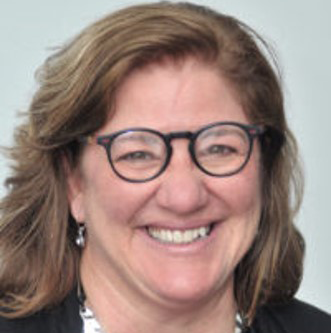
Lisette Blondet
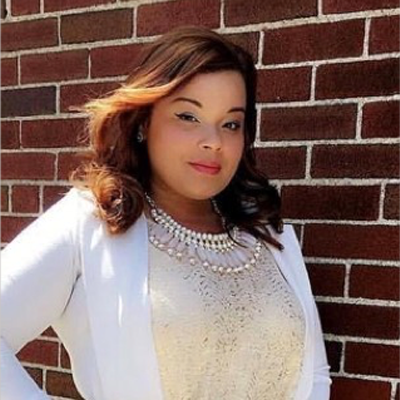
Jamie Berberena
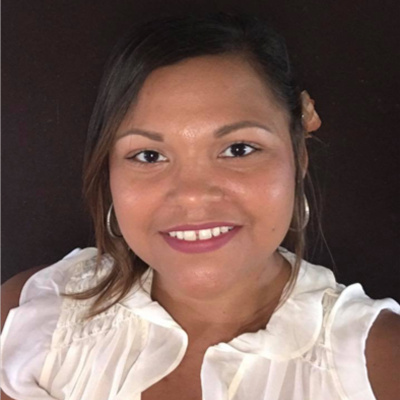
Areliz Barbosa
Lissette Blondet is the director of the Massachusetts Association of Community Health Workers (MACHW). She has dedicated most of her professional life to anchoring community health workers (CHWs) as public health professionals.
In 1993, she founded the Community Health Education Center (CHEC), one of the first training and resource centers for CHWs in the country. CHEC’s standards for CHW curricula and core competencies have been replicated in other states. The program was so successful that in 1997, the Massachusetts Department of Public Health funded its expansion to the northeast region of the state. Both centers, CHEC Boston and CHEC Northeast are still thriving and have graduated over a thousand CHWs.
More recently, Lissette provided technical assistance to the Prevention and Wellness Trust Fund on community health and community health workers. She also previously served as Director of Community Benefits for Cape Cod Healthcare, focusing on making healthcare accessible to the underserved while building her experience in healthcare financing.
As the director of MACHW, Lissette brings all her experience and skills to strengthen the association and strategically position the workforce to seize the many opportunities now available through health care reform, including reimbursement and broad recognition of the attributes and competencies of CHWs.
Jamie Berberena is the Southeast Regional Leader and Advisory Board member with the Massachusetts Association of Community Health Workers. She is a passionate public health advocate focused on promoting racial equity throughout Massachusetts. With over a decade of experience promoting the health and well-being of diverse communities across Massachusetts by providing direct support and guidance through community-based programs, multi-disciplinary clinical programs and health policy initiatives.
Areliz Barbosa is a CHW and is the Regional Chapter Leader for Western Massachusetts for the Massachusetts Association of Community Health Workers.
Moderator

Ylira Pimentel
Ylira Pimentel, LICSW, currently works with MGH’s Community Psychiatry Program for Research in Implementation and Dissemination of Evidenced-Based Treatments (PRIDE) which spearheads efforts to bring evidenced-based practices and science-driven skills to organizations and communities. At PRIDE’s Training Institute she is a group coach for its Cognitive Behavioral Therapy (CBT) based TEB (Thoughts, Emotions, Behavior) curriculum. She has extensive experience working with diverse populations through administrative, clinical, and consulting roles in organizations such as Vinfen, BayCove, Massachusetts General Hospital (MGH)-Boston and MGH’s Chelsea Healthcare Center. She is also a part-time faculty member at Boston College School of Social Work, where she teaches Cognitive Behavioral Therapy. She holds an B.A. from Umass Boston, an M.S.W. and a certificate in child and adolescent trauma from Simmons College.
Registration
Select the Enroll Me button below to register for this workshop. If you have any trouble accessing the workshop, contact support@nephtc.org.
Acknowledgement:
This project is supported by the Massachusetts Department of Public Health
This project is/was supported by the Health Resources and Services Administration (HRSA) of the U.S. Department of Health and Human Services (HHS) under grant number UB6HP31685 “Regional Public Health Training Center Program”. This information or content and conclusions are those of the author and should not be construed as the official position or policy of, nor should any endorsements be inferred by HRSA, HHS or the U.S. Government.

MACHW Workshops: From Tears to Cheers: A Story of Resilience
How has COVID-19 affected the mental health of community health workers across the state of Massachusetts? What might be the long-term effects of COVID-19 on the community health worker community?


Register
Course Information
- Audience: Members of the Massachusetts Association of Community Health Workers (MACHW)
- Format: Online Workshop
- Date/Time: Wednesday, June 22, 2022
10:00 AM to 11:30 AM EST - Price: Free
- Length: 1.5 hours
- Credential(s) eligible for contact hours: Sponsored by New England Public Health Training Center (NEPHTC). If you complete the evaluation, you will receive a Certificate of Completion. The Certificate will include the length of the workshop.
- Competencies: Effective Communication, Education to Promote Healthy Behavior Change, Use of Public Health Concepts and Approaches
- Learning Level: Awareness and Performance
- Companion Trainings: MACHW Workshop Series
- Supplemental materials:Session PowerPoint
- Pre-requisites: None
About this Workshop
This MACHW interactive workshop series aims to support CHWs as they strive to serve their clients during these challenging times. The workshop formats will include expert panels, Q and A, and case studies on critical issues from across Massachusetts.
Dr. Johnson will present on the 10C’s model he develops for understanding intergenerational trauma, vicarious trauma, diversity, conflict, self and social transformation. He will share how he use the 10C’s to help individual, groups, communities and organizations, acquire the knowledge, skills and abilities to challenge internalize and systemic oppression, by being culturally competent while engaging in cross cultural relationships. The model helps us understand the trauma, that cause the conflicts that are often faced during these experiences, that causes us to recognize and question power differences around race, culture, gender, class, sexual orientation, and other aspects of diversity. The 10C’s model helps in understand the complex social and political meaning of what we call diversity.
The 10 Cs focus counseling is a process of helping clients reconnect, reclaim, redefine, and celebrate all aspects of who we are. It is only by embracing all parts of ourselves that we can become whole empowered beings who can work to address the trauma and end the oppressions that hurt and divide us.
What you'll learn
At the end of the workshop, participants will be able to:
- Describe the 10Cs model and how it can help to build cross cultural relationships
- Explain sources, symptoms, and the long and short term effects of trauma
- Discuss epigenetics and the generational passing of trauma
- Recognize Post Traumatic Slave Syndrome and the positive and negative adaptive behaviors that may result from it
Subject Matter Expert
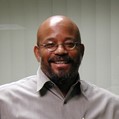
Ulric Johnson
Associate Director of Employee Assistance Program for City of Boston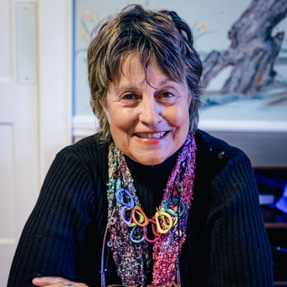
Terry Mason
He runs a private group practice Transformation Awareness Growth Vision. Where he and his associates provide cross cultural, anti-racism, mental health counseling, coaching and consultation, as well as the founder and director of Teens Against Gang Violence, a peer leadership, youth and family program.
He’s the Associate Director for the City of Boston Employee Assistant Program, where he oversees the clinical services that the program provided for over 18,000 employees, and their families.
Dr. Johnson is the former Assistant Dean/Campus Director of Springfield College: Boston Campus School of Human Services, Co-founder of the Peaceable Schools and Community Group, a former faculty member of the Harvard Graduate School of Education, and the Lesley College Center for Peaceable Schools and Communities.
Dr. Johnson received his PhD in Cross Cultural Psychology from Southwestern University and his M.A in Psychology from Boston College.
He is a Board-Certified Human Service Professional, Certified Addiction Specialist, Certified AIDS counselor, Certified Forensic Counselor, Licensed Alcohol and Drug Counselor, Licensed Mental Health Counselor, Licensed Rehabilitation Counselor, and Licensed Marriage and Family Therapist.
Dr. Johnson is a local, national, and international organizer, presenter, consultant and trainer on Cross Cultural and Multicultural communication and relationship, Gang Violence Prevention and Youth Leadership Development. He is actively involved in his local community in developing coalitions and collaborative work in bringing a multicultural approach to the issues of urban violence from a Public Health perspective.
He refers to himself as an African Trin-Bagonian, because he is originally from Trinidad and Tobago. He presently lives in Dorchester, Boston MA.
Quote: “Commitment is focus, strategy, determination, and consistency driven by love, and grounded in knowledge” From the “10C’s Model of Diversity Awareness and Social Change” By Ulric Johnson and Patti DeRosa
Theresa (Terry) Mason is an experienced public health and policy researcher, policy advocate and activist based in Boston, Massachusetts. Her graduate degrees are in socio-cultural anthropology. Her studies focused on social and political movements for change and on race, class, and ethnicity in the U.S. For the past fifteen years she has specialized in policy research and development to promote and support advancement of community health workers as part of public health, health care and other community based teams. She began this work while on staff at the Massachusetts Public Health Association where she worked as part of the MACHW -led campaign to successfully pass legislation establishing voluntary state certification for CHWs. She volunteered to prepare CHWs to talk to their legislators and led meetings at multiple MACHW annual CHW advocacy days at the legislature. She also developed a training for CHWs to expand thinking about change beyond the individual to the community level. Terry has worked directly with CHWs in harm reduction work among drug injectors at risk for HIV/AIDs, organized health care providers nationally to advocate for changes in global HIV/AIDs financing, and worked as part of collaborations promoting sustainable financing of CHWs. She is a long-time climate justice advocate and has volunteered on many community and city change initiatives, as well as volunteering on campaigns for city, state, and national candidates who promote equity and social justice.
Registration
Select the Enroll Me button below to register for this workshop. If you have any trouble accessing the workshop, contact support@nephtc.org.
Acknowledgement:
This project is supported by the Massachusetts Department of Public
Health
Acknowledgement: This project is/was supported by the Health Resources and Services Administration (HRSA) of the U.S. Department of Health and Human Services (HHS) under grant number UB6HP31685 “Regional Public Health Training Center Program.” This information or content and conclusions are those of the author and should not be construed as the official position or policy of, nor should any endorsements be inferred by HRSA, HHS or the U.S. Government.

MACHW Workshops: Wellness and Health as Public Workers
Do you often feel you don’t have enough energy or focus for all your daily task?


Register
Course Information
- Audience: Members of the Massachusetts Association of Community Health Workers (MACHW)
- Format: Online Workshop
- Date/Time: Wednesday, September 28, 2022
10:00 AM to 11:30 AM EST - Price: Free
- Length: 1.5 hours
- Credential(s) eligible for contact hours: Sponsored by New England Public Health Training Center (NEPHTC). If you complete the evaluation, you will receive a Certificate of Completion. The Certificate will include the length of the workshop.
- Competencies: Health Equity Skills
- Learning Level: Awareness and Performance
- Companion Trainings: MACHW Workshop Series
- ABCs of Immigration & Know Your Rights
- Housing Rights and Advocacy Resources for CHWs
- CHWs and Trauma Informed Care: Building Community Collective and Resilience
- Trauma Informed Care
- Self Care, Caring for Ourselves and Others
- Amplifying Voice, Equity & Well-Being for Community Health Workers
- From Tears to Cheers: A Story of Resilience
- The Importance of CHWs and Equity in Public Health
- Supplemental materials:Session PowerPoint
- Pre-requisites: None
About this Workshop
This MACHW interactive workshop series aims to support CHWs as they strive to serve their clients during these challenging times. The workshop formats will include expert panels, Q and A, and case studies on critical issues from across Massachusetts.
In this workshop, Sonalis DeLeon will walk us through the importance of wellness and health as public health workers. She will be providing information on The Seven Dimensions of Wellness.
What you'll learn
At the end of the workshop, participants will be able to:
- Explain the concept of The Seven Dimensions of Wellness
- Discuss how The Seven Dimensions of Wellness can help motivate and empower
- Identify additional tools that CHW’s can use to enhance their practice
Subject Matter Expert
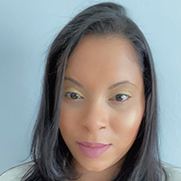
Sonalis DeLeon
Program Coordinator,
Office of Community Health Workers,
Boston Department of Public Health
Gail Hirsch
Senior Advisor,
Office of Community Health Workers,
MA Department of Health
Registration
Select the Enroll Me button below to register for this workshop. If you have any trouble accessing the workshop, contact support@nephtc.org.
Acknowledgement:
This project is supported by the Massachusetts Department of Public
Health
Acknowledgement: This project is supported by the Health Resources and Services Administration (HRSA) of the U.S. Department of Health and Human Services (HHS) as part of award 2 UB6HP31685‐05‐00 “Public Health Training Centers.” The contents are those of the author(s) and do not necessarily represent the official views of, nor an endorsement, by HRSA, HHS or the U.S. Government.
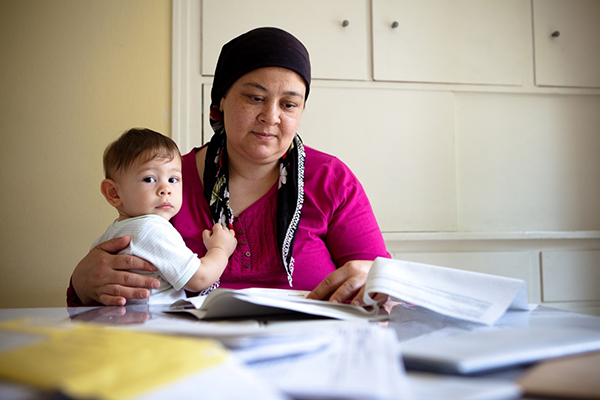
MACHW Workshops: ABCs of Immigration & Know Your Rights
Do you know what resources are available to non-citizens and/or undocumented immigrants in Massachusetts?



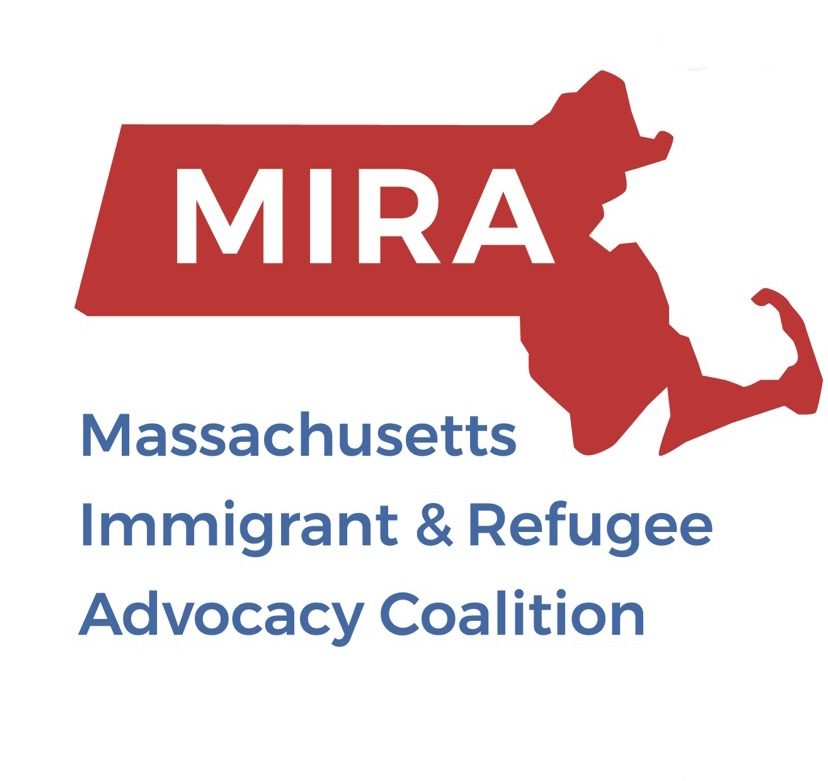
Register
Course Information
- Audience: Members of the Massachusetts Association of Community Health Workers (MACHW) and other interested CHWs
- Format: Online Workshop
- Date/Time: January 7, 2021
10:00 AM to 11:30 AM EST - Price: Free
- Length: 1.5 hours
- Credential(s) eligible for contact hours: Sponsored by New England Public Health Training Center (NEPHTC), a designated provider of continuing education contact hours (CECH) in health education by the National Commission for Health Education Credentialing, Inc. This program is designated for Certified Health Education Specialists (CHES) and/or Master Certified Health Education Specialists (MCHES) to receive up to 1 total Category I continuing education contact hours. Maximum advanced-level continuing education contact hours are 1. Provider ID: 1131137 Event ID: SS1131137_ABCIKYR.
If you are not seeking CHES/MCHES contact hours, if you complete the evaluation, you will receive a Certificate of Completion. The Certificate will include the length of the course. - Competencies:
- Cultural Responsiveness and Mediation
- Care Coordination and System Navigation
- Advocacy and Community Capacity Building
- Learning Level: Awareness and Performance
- Companion Trainings: MACHW Workshop Series
- Housing Rights and Advocacy Resources for CHWs
- Trauma Informed Care
- CHWs and Trauma Informed Care: Building Community Collective and Resilience
- Exploring Mental Health Strategies to Cope with Everyday Stress
- Self Care, Caring for Ourselves and Others
- Amplifying Voice, Equity & Well-Being for Community Health Workers
- Supplemental materials:Session PowerPoint
- Pre-requisites: None
About this Workshop
This MACHW interactive workshop series aims to support CHWs as they strive to serve their clients during these challenging times. The workshop formats will include expert panels, Q and A, and case studies on critical issues from across Massachusetts.
What you'll learn
At the end of the workshop, participants will be able to:
- Describe strategies for CHWs supporting immigration rights at the state/local level
- Find resources about worker rights and access to healthcare regardless of immigration status
- Find housing resources for immigrants
- Describe the current status of humanitarian immigration relief & Deferred Action for Childhood Arrivals (DACA)
- Describe temporary Protected Status (TPS) & Reasons for deportation
- Identify an organization to contact if a client experiences discrimination
Moderators
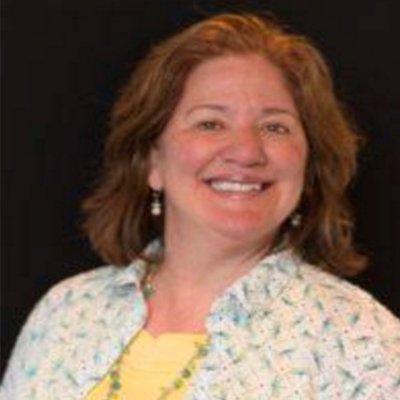
Lisette Blondet

Jamie Berberena

Areliz Barbosa
Lissette Blondet is the director of the Massachusetts Association of Community Health Workers (MACHW). She has dedicated most of her professional life to anchoring community health workers (CHWs) as public health professionals.
In 1993, she founded the Community Health Education Center (CHEC), one of the first training and resource centers for CHWs in the country. CHEC’s standards for CHW curricula and core competencies have been replicated in other states. The program was so successful that in 1997, the Massachusetts Department of Public Health funded its expansion to the northeast region of the state. Both centers, CHEC Boston and CHEC Northeast are still thriving and have graduated over a thousand CHWs.
More recently, Lissette provided technical assistance to the Prevention and Wellness Trust Fund on community health and community health workers. She also previously served as Director of Community Benefits for Cape Cod Healthcare, focusing on making healthcare accessible to the underserved while building her experience in healthcare financing.
As the director of MACHW, Lissette brings all her experience and skills to strengthen the association and strategically position the workforce to seize the many opportunities now available through health care reform, including reimbursement and broad recognition of the attributes and competencies of CHWs.
Jamie Berberena is the Southeast Regional Leader and Advisory Board member with the Massachusetts Association of Community Health Workers. She is a passionate public health advocate focused on promoting racial equity throughout Massachusetts. With over a decade of experience promoting the health and well-being of diverse communities across Massachusetts by providing direct support and guidance through community-based programs, multi-disciplinary clinical programs and health policy initiatives.
Areliz Barbosa is a CHW and is the Regional Chapter Leader for Western Massachusetts for the Massachusetts Association of Community Health Workers.
Subject Matter Experts
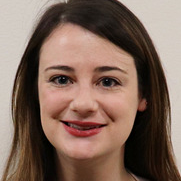
Margalit Tepper
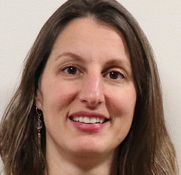
Jessica Chicco
Margalit Tepper is the Integration Projects Lead at MIRA Coalition, working on initiatives related to education, social integration, and immigrant family wellbeing. She has previously worked in refugee resettlement case management and managed an ESOL program. Margalit holds a B.S. in Human Development from Indiana University, and an M.S.W. with concentrations in child welfare and immigrant and refugee populations from Boston College.
Jessica Chicco oversees MIRA Coalition's education and training programs, citizenship program, and federal policy work. Prior to joining MIRA she was the Senior Immigration Attorney at DOVE (Domestic Violence Ended, Inc.) where she represented immigrant survivors of domestic violence. Jessica has wide-ranging experience working with community-based immigrant organizations in the greater Boston area. She holds a JD from NYU Law School and a BSFS from Georgetown University.
Registration
Select the Enroll Me button below to register for this workshop. If you have any trouble accessing the workshop, contact support@nephtc.org.
Acknowledgement:
This project is supported by the Massachusetts Department of Public Health
This project is/was supported by the Health Resources and Services Administration (HRSA) of the U.S. Department of Health and Human Services (HHS) under grant number UB6HP31685 “Regional Public Health Training Center Program”. This information or content and conclusions are those of the author and should not be construed as the official position or policy of, nor should any endorsements be inferred by HRSA, HHS or the U.S. Government.
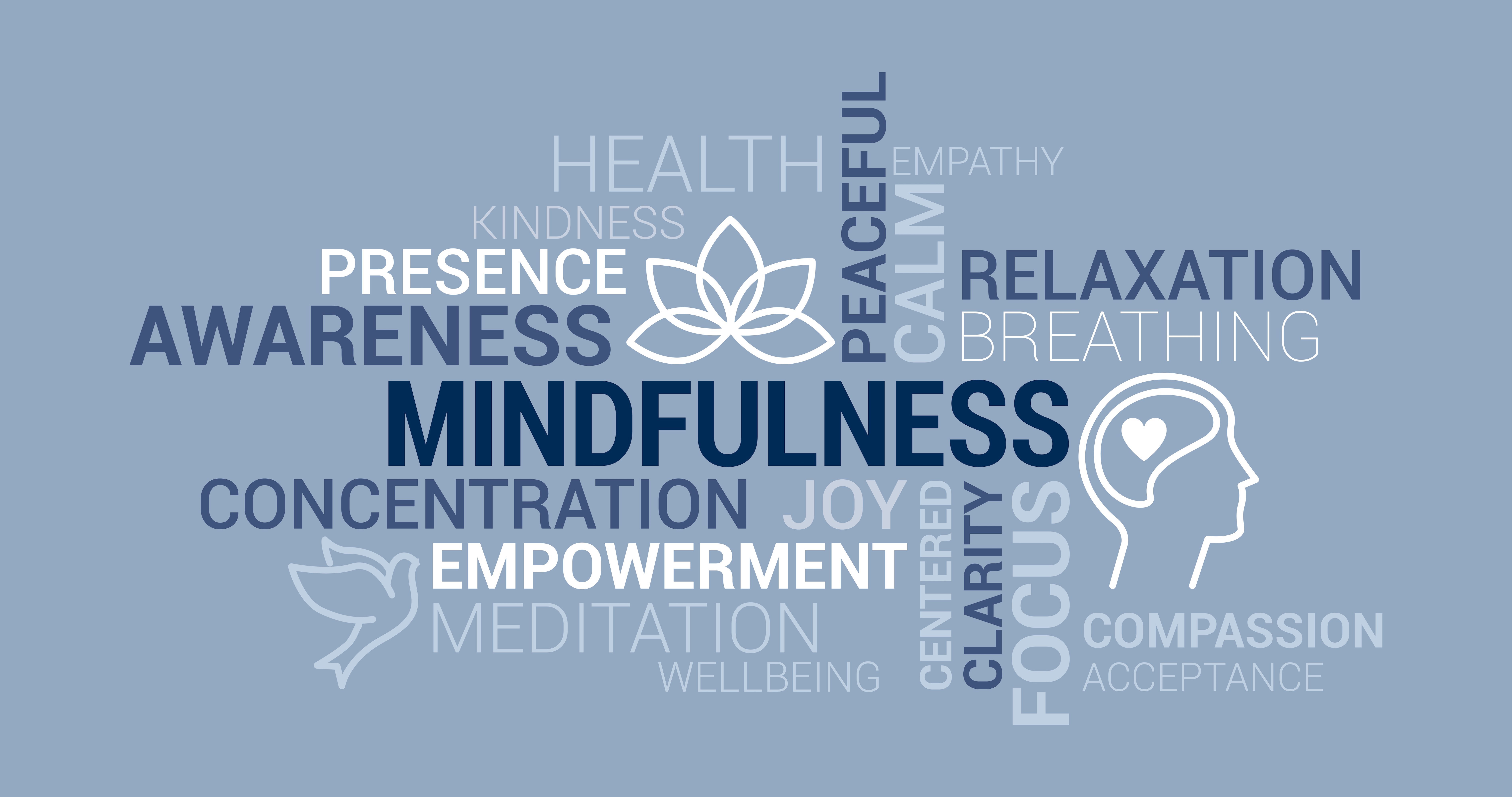
Amplifying Voice, Equity & Well-Being for Community Health Workers
Speaking up at work: why does it matter and how might it help us stay healthy?


Register
Course Information
- Audience: Members of the Massachusetts Association of Community Health Workers (MACHW)
- Format: Online Workshop
- Date/Time: Thursday July 8, 2021
10:00 AM to 11:30 AM EST - Price: Free
- Length: 1.5 hours
- Credential(s) eligible for contact hours: Sponsored by New England Public Health Training Center (NEPHTC). MACHW and NEPHTC are pleased to offer a certificate of completion to all attendees and for Mass CHWS who complete this 1.5 hour webinar you will receive 1.5 CEUs for renewal of your CHW certification. Please return to nephtc.org complete the evaluation and you can obtain a downloadable certificate with your name and date of download.
- Competencies: Effective Communication,
Cultural Responsiveness and Mediation, Education to Promote Healthy Behavior Change, Use of Public Health Concepts and Approaches, Advocacy and Community Capacity Building
- Learning Level: Awareness and Performance
- Companion Trainings: MACHW Workshop Series
- Supplemental materials:Session PowerPoint
- Pre-requisites: None
About this Workshop
This MACHW interactive workshop series aims to support CHWs as they strive to serve their clients during these challenging times. The workshop formats will include expert panels, Q and A, and case studies on critical issues from across Massachusetts.
Community Health Workers are central in supporting the health of the communities they work with, and yet, they are often at risk for burnout themselves due to inequitable work conditions. This workshop will discuss strategies for voice and reflect on how to improve well-being at work.
At the end of the workshop, participants will be able to:
- Explore the connection between workers’ voices and their well-being as individuals, and as a collective group.
- Discuss benefits of worker unions and strategies for organizing workers in health and social services.
- Discuss strategies for voicing and improving well-being at work
-
Recognize how systemic oppressions and practices impact our work and well being
Subject Matter Expert
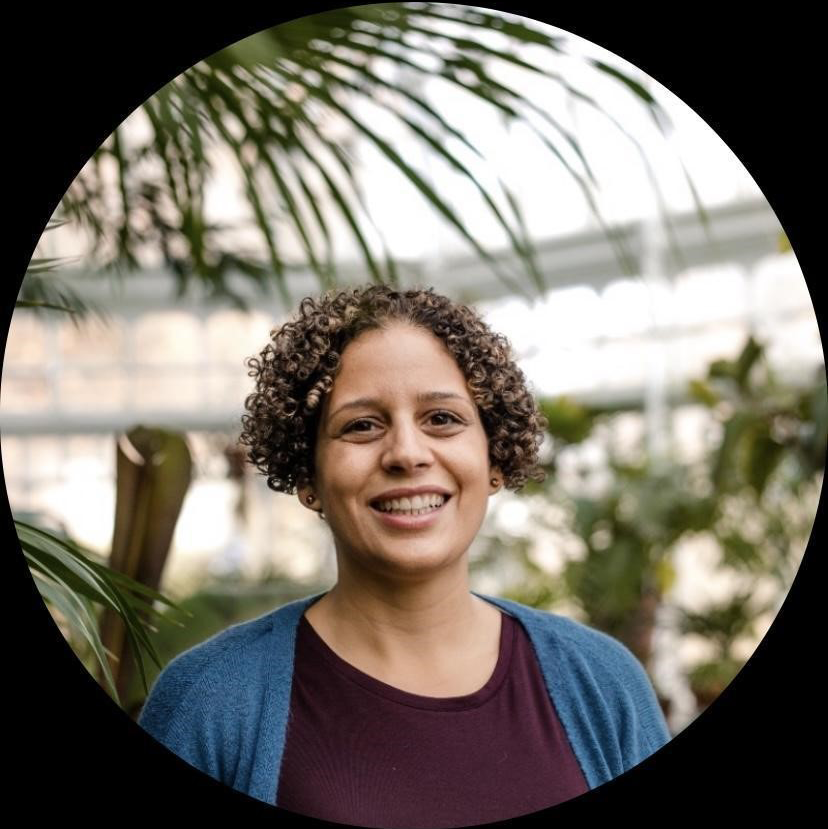
Yaminette Diaz
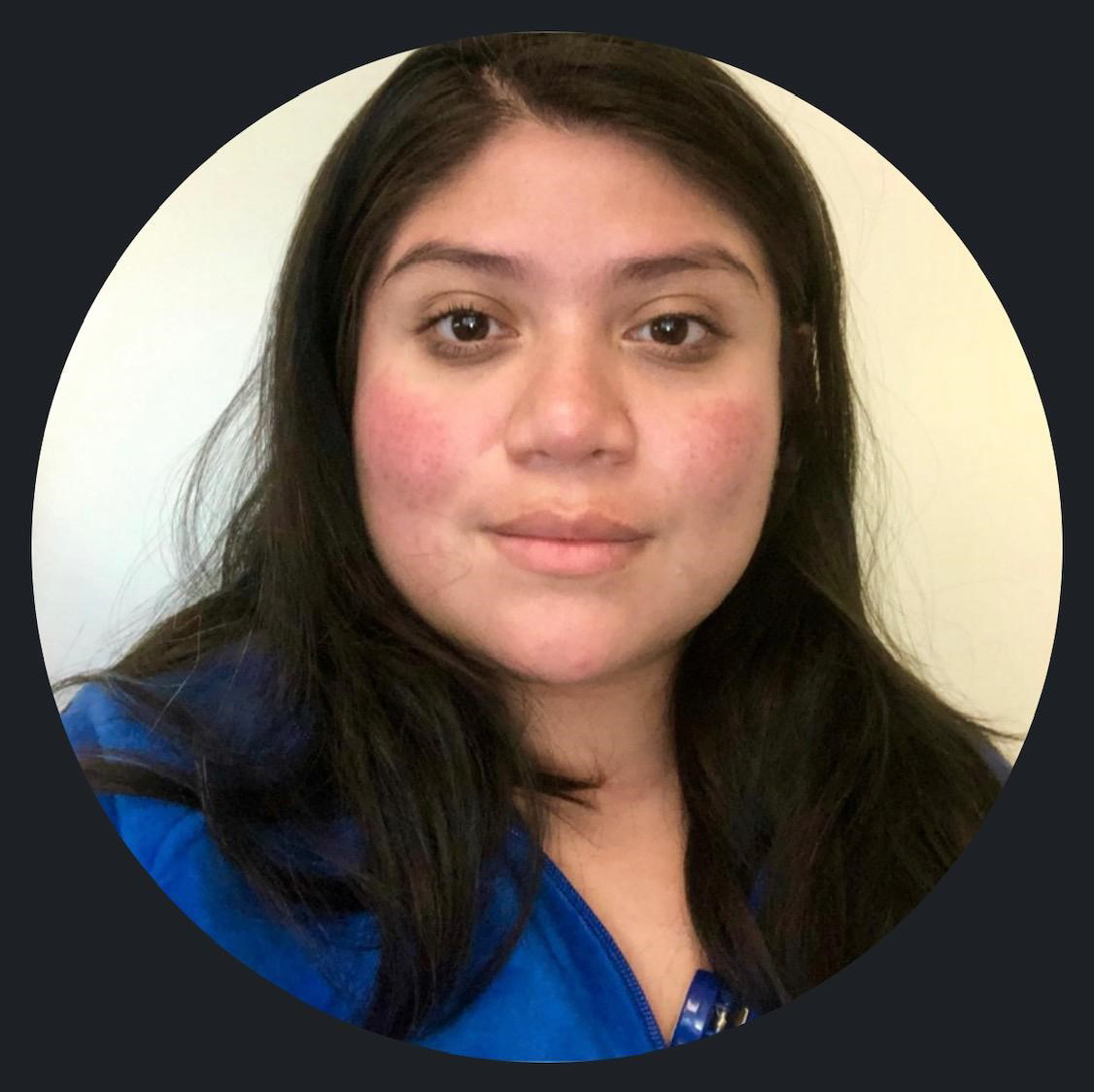
Kimberly Mendoza
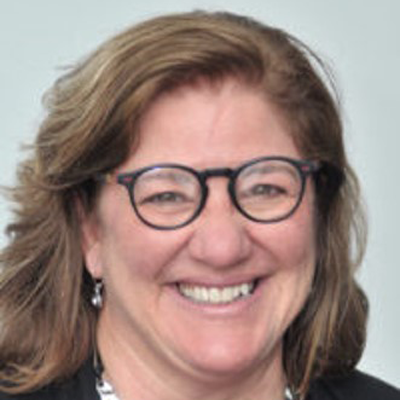
Lisette Blondet

Jamie Berberena

Areliz Barbosa
Yaminette Díaz-Linhart is a PhD candidate at Brandeis University. Her research explores how worker voice and representation impact well-being outcomes for health care and social service workers. She is currently conducting a study to understand the well-being of community health workers in Massachusetts.
Kimberly Mendoza Iraheta is a CHW and Regional Chapter Leader in Greater-Boston for the Massachusetts Association of Community Health Workers.
Lissette Blondet is the director of the Massachusetts Association of Community Health Workers (MACHW). She has dedicated most of her professional life to anchoring community health workers (CHWs) as public health professionals. In 1993, she founded the Community Health Education Center (CHEC), one of the first training and resource centers for CHWs in the country. CHEC’s standards for CHW curricula and core competencies have been replicated in other states. The program was so successful that in 1997, the Massachusetts Department of Public Health funded its expansion to the northeast region of the state. Both centers, CHEC Boston and CHEC Northeast are still thriving and have graduated over a thousand CHWs. More recently, Lissette provided technical assistance to the Prevention and Wellness Trust Fund on community health and community health workers. She also previously served as Director of Community Benefits for Cape Cod Healthcare, focusing on making healthcare accessible to the underserved while building her experience in healthcare financing. As the director of MACHW, Lissette brings all her experience and skills to strengthen the association and strategically position the workforce to seize the many opportunities now available through health care reform, including reimbursement and broad recognition of the attributes and competencies of CHWs.
Jamie Berberena is the Southeast Regional Leader and Advisory Board member with the Massachusetts Association of Community Health Workers. She is a passionate public health advocate focused on promoting racial equity throughout Massachusetts. With over a decade of experience promoting the health and well-being of diverse communities across Massachusetts by providing direct support and guidance through community-based programs, multi-disciplinary clinical programs and health policy initiatives.
Areliz Barbosa is a CHW and is the Regional Chapter Leader for Western Massachusetts for the Massachusetts Association of Community Health Workers.
Registration
Select the Enroll Me button below to register for this workshop. If you have any trouble accessing the workshop, contact support@nephtc.org.
Acknowledgement:
This project is supported by the Massachusetts Department of Public Health
This project is/was supported by the Health Resources and Services Administration (HRSA) of the U.S. Department of Health and Human Services (HHS) under grant number UB6HP31685 “Regional Public Health Training Center Program”. This information or content and conclusions are those of the author and should not be construed as the official position or policy of, nor should any endorsements be inferred by HRSA, HHS or the U.S. Government.
To Learn more about the Massachusetts Association of Community Health Workers please visit: www.machw.org
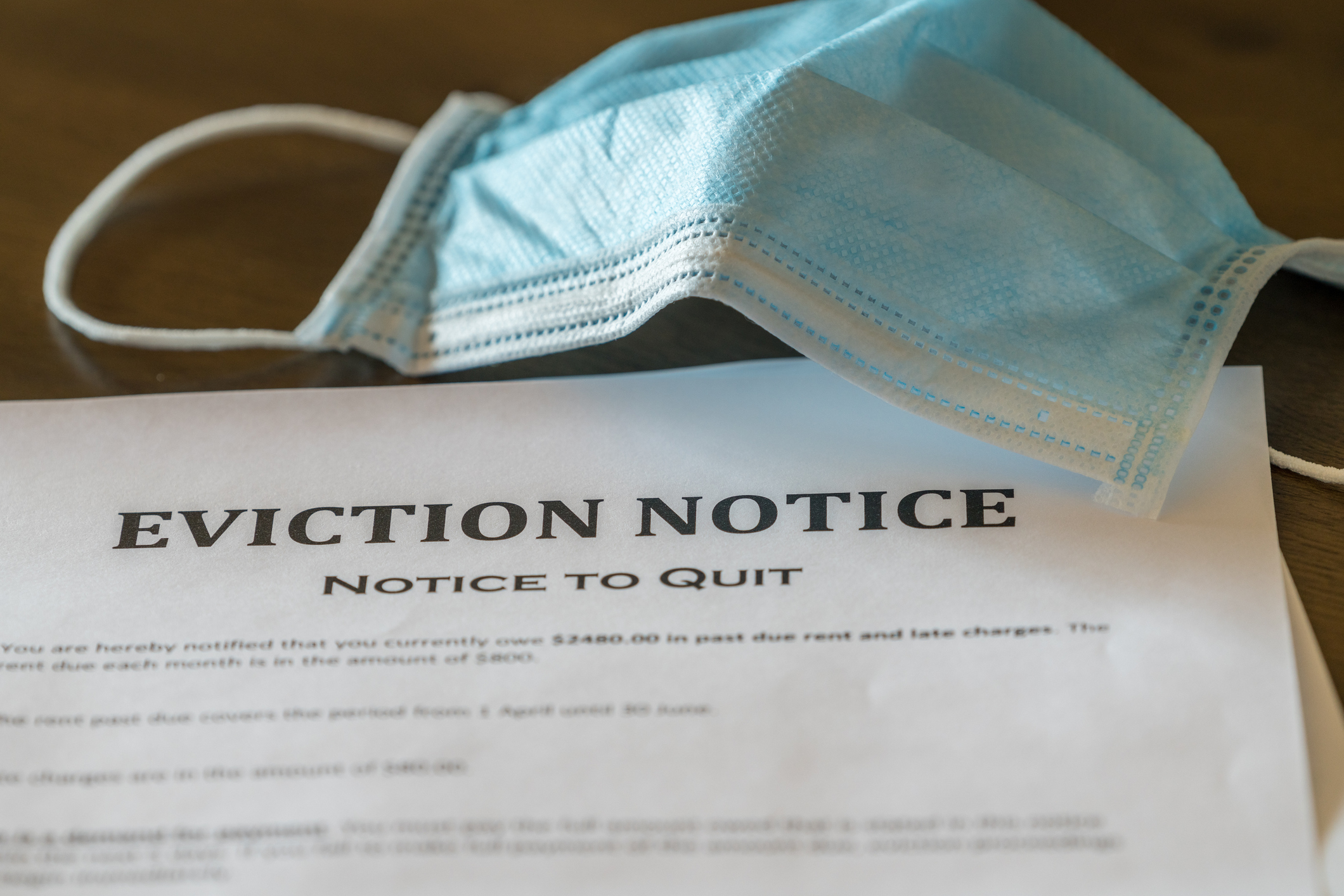
MACHW Workshops: Housing Rights and Advocacy Resources for CHWs
Do you have the information and resources you need to help your clients facing eviction?


Register
Course Information
- Audience: Members of the Massachusetts Association of Community Health Workers (MACHW)
- Format: Online Workshop
- Date/Time: November 5, 2020 10:00 AM to 11:30 AM EST
- Price: Free
- Length: 1.5 hours
- Credential(s) eligible for contact hours: Sponsored by New England Public Health Training Center (NEPHTC). If you complete the evaluation, you will receive a Certificate of Completion. The Certificate will include the length of the workshop.
- Competencies: Care Coordination and System Navigation, Advocacy and Community Capacity Building
- Learning Level: Awareness and Performance
- Companion Trainings: MACHW Workshop Series
- ABCs of Immigration & Know Your Rights
- Exploring Mental Health Strategies to Cope with Everyday Stress
- Trauma Informed Care
- CHWs and Trauma Informed Care: Building Community Collective and Resilience
- Self Care, Caring for Ourselves and Others
- Amplifying Voice, Equity & Well-Being for Community Health Workers
- Supplemental materials:Session PowerPoint
- Pre-requisites: None
About this Workshop
The November 5 workshop is about the end of the eviction moratorium.
This MACHW interactive workshop series aims to support CHWs as they strive to serve their clients during these challenging times. The workshop formats will include expert panels, Q and A, and case studies on critical issues from across Massachusetts.
Get the resources and skills you need to excel as a CHW during these trying times. A monthly participatory workshop designed specifically for CHWs
What you'll learn
At the end of the workshop, participants will be able to:
- Describe the moratorium at the federal and state level and the governor's new EDI initiative
- Describe strategies for advocacy at the local level
- Describe the fair housing framework and discrimination red flags
- Know the two follow up steps: Apply for RAFT and fill out the CDC Order
Moderators

Lisette Blondet

Jamie Berberena

Areliz Barbosa
Lissette Blondet is the director of the Massachusetts Association of Community Health Workers (MACHW). She has dedicated most of her professional life to anchoring community health workers (CHWs) as public health professionals.
In 1993, she founded the Community Health Education Center (CHEC), one of the first training and resource centers for CHWs in the country. CHEC’s standards for CHW curricula and core competencies have been replicated in other states. The program was so successful that in 1997, the Massachusetts Department of Public Health funded its expansion to the northeast region of the state. Both centers, CHEC Boston and CHEC Northeast are still thriving and have graduated over a thousand CHWs.
More recently, Lissette provided technical assistance to the Prevention and Wellness Trust Fund on community health and community health workers. She also previously served as Director of Community Benefits for Cape Cod Healthcare, focusing on making healthcare accessible to the underserved while building her experience in healthcare financing.
As the director of MACHW, Lissette brings all her experience and skills to strengthen the association and strategically position the workforce to seize the many opportunities now available through health care reform, including reimbursement and broad recognition of the attributes and competencies of CHWs.
Jamie Berberena is the Southeast Regional Leader and Advisory Board member with the Massachusetts Association of Community Health Workers. She is a passionate public health advocate focused on promoting racial equity throughout Massachusetts. With over a decade of experience promoting the health and well-being of diverse communities across Massachusetts by providing direct support and guidance through community-based programs, multi-disciplinary clinical programs and health policy initiatives.
Areliz Barbosa is a CHW and is the Regional Chapter Leader for Western Massachusetts for the Massachusetts Association of Community Health Workers.
Subject Matter Experts
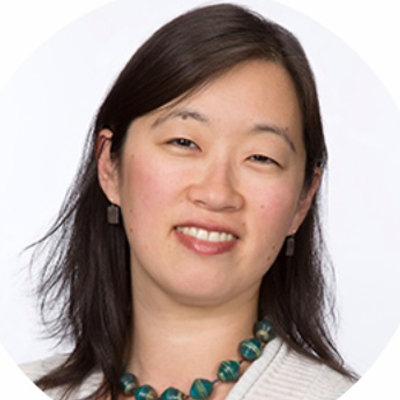
Andrea M. Park

Mary Ellen Natale
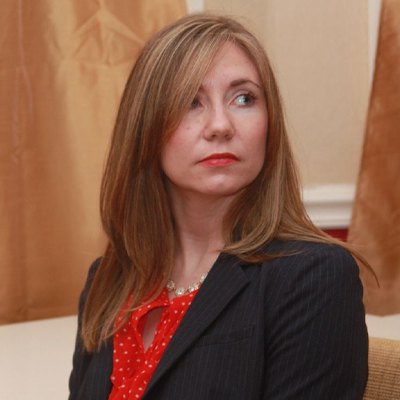
Kristina da Fonseca
Andrea M. Park joined MLRI as a Housing and Homelessness staff attorney in 2016. Prior to that Andrea worked as an Assistant Attorney General in the Civil Rights and Consumer Protection Divisions of the Massachusetts Attorney General’s Office; an attorney at the Harvard Legal Aid Bureau on an innovative foreclosure defense project partnering lawyers and community organizers; and a staff attorney at Community Legal Aid in Worcester specializing in housing, foreclosure, consumer and bankruptcy litigation.
In 2015 Andrea was honored by the Harvard Law and International Development Society and Harvard Women's Law Association in their International Women's Day Portrait Exhibit entitled Women Inspiring Change. Andrea holds a B.A. from Tufts University, an M.A. from the University of Chicago, and a J.D. from the University of Minnesota Law School, where she served as director of the Indian Child Welfare Act Clinic. Andrea grew up in East Tennessee and is a lifelong musician.
Mary Ellen Natale is Managing Attorney of South Coastal Counties Legal Services’ (SCCLS) New Bedford, MA Law Office. Prior to joining SCCLS, she was Deputy Director of the Legal Aid Society of Rockland County (NY). Her previous positions include Managing Attorney with Legal Aid of Western Ohio; and Staff Attorney positions with the Legal Aid Society of Northeastern New York, Nassau/Suffolk Law Services Committee, the Legal Aid Society of Rochester, NY and with the Food Research and Action Center in Washington, DC. A graduate of Colgate University and Boston College Law School, she has held faculty positions at the Arizona State University Sandra Day O’Connor College of Law and at St. John’s University School of Law.
Attorney Kristina da Fonseca is founder and Executive Director of SouthCoast Fair Housing (SCFH). SCFH is a non-profit full-service fair housing organization with a mission is to eradicate housing discrimination and increase equal housing opportunities in Rhode Island and southeastern Massachusetts. SCFH provides fair housing education and outreach, investigates fair housing complaints, enforces fair housing laws, and advocates for policies that will further fair housing.
Registration
Select the Enroll Me button below to register for this workshop. If you have any trouble accessing the workshop, contact support@nephtc.org.
Acknowledgement:
This project is supported by the Massachusetts Department of Public Health
This project is/was supported by the Health Resources and Services Administration (HRSA) of the U.S. Department of Health and Human Services (HHS) under grant number UB6HP31685 “Regional Public Health Training Center Program”. This information or content and conclusions are those of the author and should not be construed as the official position or policy of, nor should any endorsements be inferred by HRSA, HHS or the U.S. Government.

MACHW Workshops: Self Care, Caring for Ourselves and Others
Who is caring for the caretaker?
Join us as we explore self care strategies for demanding times.


Register
Course Information
- Audience: Members of the Massachusetts Association of Community Health Workers (MACHW)
- Format: Workshop
- Date/Time: Thursday May 6, 2021
10:00 AM to 11:30 AM EST - Price: Free
- Length: 1.5 hours
- Credential(s) eligible for contact hours: Sponsored by New England Public Health Training Center (NEPHTC). If you complete the evaluation, you will receive a Certificate of Completion. The Certificate will include the length of the workshop.
- Competencies: Effective Communication, Education to Promote Healthy Behavior Change, Use of Public Health Concepts and Approaches
- Learning Level: Awareness and Performance
- Companion Trainings: MACHW Workshop Series
- ABCs of Immigration & Know Your Rights
- Housing Rights and Advocacy Resources for CHWs
- CHWs and Trauma Informed Care: Building Community Collective and Resilience
- Trauma Informed Care
- Exploring Mental Health Strategies to Cope with Everyday Stress
- Amplifying Voice, Equity & Well-Being for Community Health Workers
- Supplemental materials:Session PowerPoint
- Pre-requisites: None
About this Workshop
This MACHW interactive workshop series aims to support CHWs as they strive to serve their clients during these challenging times. The workshop formats will include expert panels, Q and A, and case studies on critical issues from across Massachusetts.
In this workshop, we explore the Stress First Aid (SFA) model based on five evidence-informed factors that help people recover from stress and adversity. These include the need for safety, calm, connection, sense of competence or self-efficacy, and hope.
Stress First Aid (SFA) provides a framework for psychological peer support, with a set of supportive actions designed to promote self-care and coworker support. The overarching aim of SFA is to identify and mitigate the negative impacts of stress at work before they impair staff health and well-being.
At the end of the workshop, participants will be able to:
- Explore evidence informed strategies to increase self efficacy, promote self care and mental wellness
- Begin to understand and utilize resiliency practices and Stress First Aid
- Define empathy and compassion, how they differ and what gets in their way
- Describe what makes us strong and what makes us vulnerable as caregivers
- Better understand what takes place in our mind and body when we experience stress
Moderators

Lisette Blondet

Jamie Berberena

Areliz Barbosa
Lissette Blondet is the director of the Massachusetts Association of Community Health Workers (MACHW). She has dedicated most of her professional life to anchoring community health workers (CHWs) as public health professionals. In 1993, she founded the Community Health Education Center (CHEC), one of the first training and resource centers for CHWs in the country. CHEC’s standards for CHW curricula and core competencies have been replicated in other states. The program was so successful that in 1997, the Massachusetts Department of Public Health funded its expansion to the northeast region of the state. Both centers, CHEC Boston and CHEC Northeast are still thriving and have graduated over a thousand CHWs. More recently, Lissette provided technical assistance to the Prevention and Wellness Trust Fund on community health and community health workers. She also previously served as Director of Community Benefits for Cape Cod Healthcare, focusing on making healthcare accessible to the underserved while building her experience in healthcare financing. As the director of MACHW, Lissette brings all her experience and skills to strengthen the association and strategically position the workforce to seize the many opportunities now available through health care reform, including reimbursement and broad recognition of the attributes and competencies of CHWs.
Jamie Berberena is the Southeast Regional Leader and Advisory Board member with the Massachusetts Association of Community Health Workers. She is a passionate public health advocate focused on promoting racial equity throughout Massachusetts. With over a decade of experience promoting the health and well-being of diverse communities across Massachusetts by providing direct support and guidance through community-based programs, multi-disciplinary clinical programs and health policy initiatives.
Areliz Barbosa is a CHW and is the Regional Chapter Leader for Western Massachusetts for the Massachusetts Association of Community Health Workers.
Subject Matter Expert
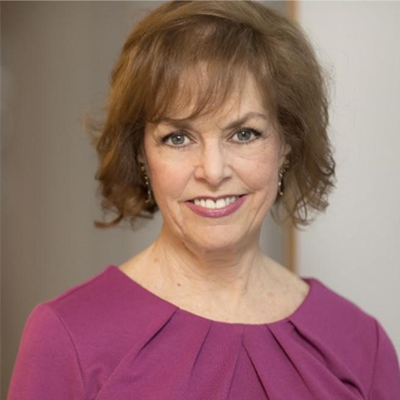
Beth Lown
Beth Lown, MD Chief Medical Officer of The Schwartz Center for Compassionate Healthcare. In this role she creates scientific content and develops new initiatives, programs and research. She speaks locally, nationally and internationally about empathy, compassion and communication, and teaches these attributes and skills to health professionals across the continuum of learning. Dr. Lown is associate professor of Medicine, Harvard Medical School, Boston, MA and is a clinician- educator at Mount Auburn Hospital, Cambridge, MA.
Registration
Select the Enroll Me button below to register for this workshop. If you have any trouble accessing the workshop, contact support@nephtc.org.
Acknowledgement:
This project is supported by the Massachusetts Department of Public Health
This project is/was supported by the Health Resources and Services Administration (HRSA) of the U.S. Department of Health and Human Services (HHS) under grant number UB6HP31685 “Regional Public Health Training Center Program”. This information or content and conclusions are those of the author and should not be construed as the official position or policy of, nor should any endorsements be inferred by HRSA, HHS or the U.S. Government.






